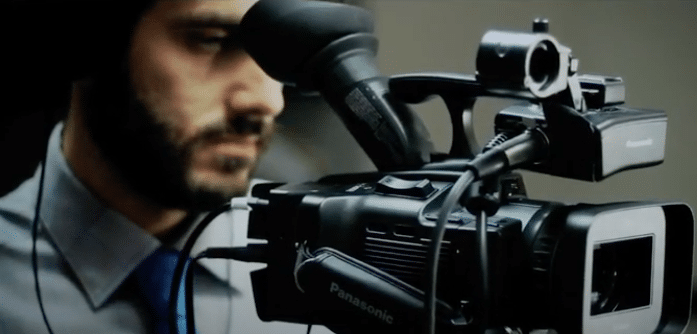 For many of us, including us here at CourtScribes, connecting by Zoom, Teams, or WebEx is rather routine. Many use this for work-related meetings, online schooling, or remote social hours. These video-conferencing platforms have provided a way to maintain daily connections during the COVID-19 pandemic.
For many of us, including us here at CourtScribes, connecting by Zoom, Teams, or WebEx is rather routine. Many use this for work-related meetings, online schooling, or remote social hours. These video-conferencing platforms have provided a way to maintain daily connections during the COVID-19 pandemic.
Even during the pandemic, litigation has continued amidst social distancing requirements and court closures, and with that comes the remote depositions. Many, if not all, depositions during COVID-19 are being handled remotely. While this does pose additional considerations as to procedure, remote depositions are not to be feared. Below are the three tips for witnesses, counsel, and other participants to assist in preparing for a remote deposition.
1. Plan, Prepare and Plan Some More
Take advantage of the short commute to your home office by using that extra time to prepare for the logistics of a remote deposition. Make sure you have a stable internet connection and a working microphone. The court reporter transcribing the deposition will thank you. Also, make sure family members and pets are out of the way to minimalize any distracting background noises.
Also, double-check the background that will be visible behind you. Many depositions are video-recorded as well as transcribed, and these videos ultimately may be played to a jury. Photos, clocks, and artwork behind the witness may detract from the testimony. Consider using a professional-looking virtual background if necessary.
2. Use an Experienced Court Reporter
While this might be your first remote deposition, make sure it is not the first for your court reporter. The court reporter (or videographer, like CourtScribes) should serve as the host and should be well-versed in the mechanics of serving as the appointed officer from a remote location.
Experienced court reporting services should come prepared with a stipulation to swear in the witness remotely. They should also be ready to handle exhibits electronically, which will save the witness from having to ship hard copies to the court reporter later. Sophisticated video-conferencing platforms allow a witness to take control over an exhibit on the screen and to scroll through pages or add markups as instructed by counsel.
Like any video conferencing call, you will receive a link prior to the deposition. Test it out a day or so before to make sure you have the necessary software installed and to confirm the platform is compatible with your computer, camera, and microphone. Similarly, make sure you have a game plan for exhibits, whether that be uploading them in advance or sharing them yourself during the deposition. Likewise, make sure you conduct a trial run of that technology.
3. Be a Good Witness (Or Prepare Your Client to Do the Same)
Have the host set up a private break room so the witness and counsel can confer during breaks. The witness should set up her screen so she can see the questioning attorney, the court reporter, and her counsel. Remotely, it is easy for the witness to fall into conversation mode and forget to include the witness’s counsel in the equation. If needed, counsel could hold up a finger when he or she intends to object to remind the witness to wait.
Witnesses also should be aware that the questioning attorney often will ask if the witness has any materials with them during the deposition. If so, these materials likely will have to be provided to the other side.
Overall, being more comfortable and familiar with the process than your opposition will be to your advantage and will allow you to focus on substance rather than the logistics. Remote depositions are likely to be around for a while. Embrace them!
If you need court reporting services that handle digital recording then CourtScribes.com which supports all states and programs that aid in the court reporting world are ready to serve you in your court reporting, videography services, interpreters, live-streaming, and video-to-text synchronization.
Although the majority of cities that offer CourtScribes’ services are in Florida, the company home base, other cities all across these United States that CourtScribes offers services in, are the following: Jacksonville, Miami, Tampa, Port St. Lucie, Fort Lauderdale, Cape Coral, Coral Springs, Clearwater, Palm Bay, Fort Myers, Weston, Sarasota, Orlando, St. Petersburg, Hialeah, Stuart, Hollywood, Naples, West Palm Beach, Boca Raton, Deerfield Beach, Jupiter, Key West, Coral Gables, Maryland, Manhattan, Buffalo, Washington DC, Baltimore, Bowie, Virginia, Frederick, Albany, New York, Brooklyn, Westchester, Gaithersberg, and Rockville.
